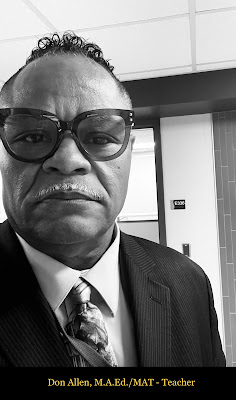Don Allen on GED-8005-1 Academic Writing for Graduate Students

“It is unabashedly ambitious, and yet completely accessible to those willing to put in the time and effort.” Course Evaluation by Don Allen, Ed.S., M.A.Ed., MAT. Hamline University's "Academic Writing for Graduate Students" (GED 8005-1), taught by Professor Julia Reimer in the Summer of 2025, provided me with a foundational experience, helping me to develop my scholarly voice and enhance my graduate-level writing skills, including experimenting with journal and book writing in tandem with authoring a critical dissertation. As a doctoral student who has been a Piper for 15 years (10-years in graduate school), I took this course seriously and with enthusiasm, I can attest with certainty that GED 8005-1 is more than a support course, it is a required academic rite of passage that needs to be permanently integrated into the Ed.D. program for all subsequent cohorts. I was a little nervous at first because I didn’t want what I thought was a random course to deconstruct my GPA....


